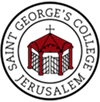Women of the Bible
The Women of the Bible course is a ten day study pilgrimage which offers a reflective spiritual experience visiting the holy sites relating to both the Old and New Testaments highlighting especially the stories of women.
Course Description
Featuring guest course lecturer, Dr Paula Gooder of St Paul’s Cathedral, London, Women of the Bible is a ten-day pilgrimage course focusing on the roles, images, and contributions of women in the Old and New Testaments and the sites and stories associated with them. Attention will be given to the places, traditions, and images of Mary, the mother of Jesus, as well as minor and unnamed woman on the Bible. The course also recognizes historical women who have contributed to the Holy Land in the post-biblical period as well as the experience of contemporary women living in the land.
A transformational journey of faith in the footsteps of female figures, Women of the Bible incorporates classroom lectures, on-site visits, a residential pilgrim community, the voices of others, prayer, worship, and personal time and reflection. The course includes a three-day, two-night excursion to the Galilee.
Women of the Bible is open to everyone, both men and women, individuals as well as parish and diocesan groups.
Course Program
The program includes site visits to locations associated with women of the Bible. The course draws upon figures and places from the Old Testament, New Testament, historical, and contemporary periods. Note: Some standard sites of Holy Land pilgrimage may not be included.
Old Testament figures/sites related to the course include:
- Sarah and the Biblical Matriarchs (Hebron, Oak of Mamre), Rahab (Jericho), Ruth & Naomi (Bethlehem), Jael, Jezebel, and Deborah (Samaria, Jezreel Valley, Lower Galilee), the Queen of Sheba, Bathsheba (Jerusalem)
New Testaments figures/sites related to the course include:
- Women of the Nativity Stories (Ann, Mary, Elizabeth, and Anna)
- The Samaritan Women (Jacob’s Well in Nablus)
- Mary (Cana)
- Women of Capernaum (Peter’s mother-in-Law, Jairus’ daughter)
- Mary Magdalene (Migdal)
- Parables with female characters (The Lost Coin, The Widow’s Mite)
- Mary & Martha (Bethany)
- Women of the Way of the Cross, the Crucifixion, and the Resurrection
- Women of the Book of Acts (Dorcas)
- Among others
Post-Biblical figures related to the course include:
- St Helena, the mother of Constantine
- Mary the Egyptian
- Queen Melisende
- And many others
Guest Course Lecturer
A lecturer in biblical studies with an emphasis on the New Testament, Dr Paula Gooder is the Chancellor of St Paul’s Cathedral, London, where she has oversight of their education programme. She has previously been a freelance speaker and writer, the Theologian in Residence for the Bible Society, and the Director of Mission Learning and Development for the Birmingham Diocese. Paula is the author of several books, including Parables (2020), Women of Holy Week (2022), Phoebe: A Story (2018) and Lydia: A Story (2022).
Course Facilitator
The Revd Rodney Aist, PhD, the course director at St George’s College, will serve as the course facilitator and co-leader. A scholar of Holy Land pilgrimage, he’s the author of Jerusalem Bound: How to be a Pilgrim in the Holy Land (2020) and Pilgrim Spirituality (2022).
Course-Related Readings
Along with books by Paula Gooder and a suggested reading list that will be sent to course participants, Women of the Bible resources include:
The Virgin Mary: A Very Short Introduction, Mary Joan Winn Leith
Reading the Women of the Bible, Tikva Frymer-Kensky
Women’s Bible Commentary, Carol A. Newsom and Sharon H. Ringe (eds.)
Not Counting Women and Children, Megan McKenna
She Who Is, Elizabeth A. Johnson
Whispering the Word, Jacqueline Lapsley

